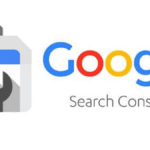📈 Traffic range: ~50–200 pageviews total (~2–7/day)
Imagine: You’ve launched—with a handful of pages, basic SEO, and a few social shares.
Why so low? Nobody knows you yet; Google barely sees you, and you’re just laying the groundwork.
Supporting anecdotes:
-
Reddit: “Like 5 views maybe?… Happen to me… I don’t expect… until maybe 8–12 months.”
🏆 What to focus on during this phase:
-
Publish 5–10 well-researched pages or product listings.
-
Set up analytics and Search Console.
-
Do outreach: tell personal contacts, share on social, be visible in niche forums.
-
Begin keyword research and plan your content calendar.
🌱 Month 2 (Days 31–60)
📈 Traffic range: 200–500 pageviews/month (~7–17/day)
Why this bump? Google begins to index the site; you begin to catch a few organic visits and direct traffic.
Benchmarks:
-
Small blogs grow ~6% a month, but early phases can jump faster.
-
Many part-time bloggers hit ~1,700 pageviews by Month 2 with a strong strategy.
🏆 Your goals:
-
Publish 2–4 more pieces.
-
Promote heavily—social shares, tagging influencers.
-
Continue building backlinks (comments, guest posts).
-
Track which pieces get early engagement and double down there.
📈 Month 3 (Days 61–90)
📈 Traffic range: 500–1,500 pageviews/month (~16–50/day)
Why the lift? Accumulated content starts to show in search results.
Expert data:
-
32% of new blogs reach ~1,000 monthly sessions between 4–6 months.
-
55% of experts say initial traction appears in 3–9 months.
🏆 Your goals:
-
Increase publishing frequency: aim for 8–12 pieces in 90 days.
-
Optimize top-performing posts based on search and analytics data.
-
Focus on organic SEO tactics.
🚀 Month 4 (Days 91–120)
📈 Traffic range: 1,000–2,500 pageviews/month (~33–83/day)
Why steady growth? Compound effect of indexed articles and backlinks; traffic builds on itself.
Industry insight:
-
Small blogs average ~3,764 views/month after a year.
-
Target 6% compound monthly growth—that means ~1.88× traffic in a year.
🏆 Your goals:
-
Batch-create content with keyword clusters.
-
Implement email capture and a basic newsletter.
-
Consider small-scale ad testing (e.g., Facebook, Pinterest).
🏁 Year One (Days 121–365)
📅 At Month 6: ~2,500–4,000 pageviews/month
📅 At Month 12: ~4,000–8,000 pageviews/month (~130–270/day)
📈 Annual Growth Goal: Reach ~45,000 yearly pageviews (avg ~3,700/mo).
📉 Realist note: Many serious part-time bloggers still see under 100 visits/day after a year without strong SEO.
🏆 Your milestones:
-
Maintain consistent publishing (e.g., 1–2 quality posts/week).
-
Grow email list (target 500–1,000 subscribers).
-
Build a decent backlink portfolio.
-
Explore monetization: affiliate links, Amazon Associate, info products.
📊 Growth Summary Table
| Timeframe | Pageviews/Month | Visitors/Day |
|---|---|---|
| 30 days | 50–200 | 2–7 |
| 60 days | 200–500 | 7–17 |
| 90 days | 500–1,500 | 16–50 |
| 120 days | 1,000–2,500 | 33–83 |
| 12 months | 4,000–8,000 | 130–270 |
📚 Why These Numbers?
-
Benchmark data shows small blogs average just ~3.7 k pageviews/month after year one.
-
Community wisdom: Many solo creators hit near-zero for months; initial traction can take 3–9 months.
-
Industry median growth is ~6% monthly for sites above ~2,000 views—but early stages can spike more.
🧠 Tips for Staying on Course
-
Quality > Quantity: One outstanding blog post can far outperform ten average ones.
-
SEO is long-term: You’re playing the patience game—Google sandbox effects last 3–6 months.
-
Promotion matters: Engage communities, forums, social groups, and targeted influencers.
-
Track and adapt: Review analytics monthly. Double down on what works.
-
Email growth = retention: A small list goes far—build it from Day 30 onward.
🙌 Final Take
Launching a website solo is slow burn, not fireworks. Here’s what to expect:
-
0–3 months: low to modest traffic (~7–50 visits/day)
-
4–6 months: gaining momentum (~30–80/day)
-
12 months: reaching a comfortable baseline (~130–270/day), about 4–8k monthly visits
At each step, your growth depends heavily on consistent publishing, smart SEO tactics, and active promotion. There are no shortcuts—but with patience, focus, and adaptability, a solo-run site can steadily grow into a sustainable business.


